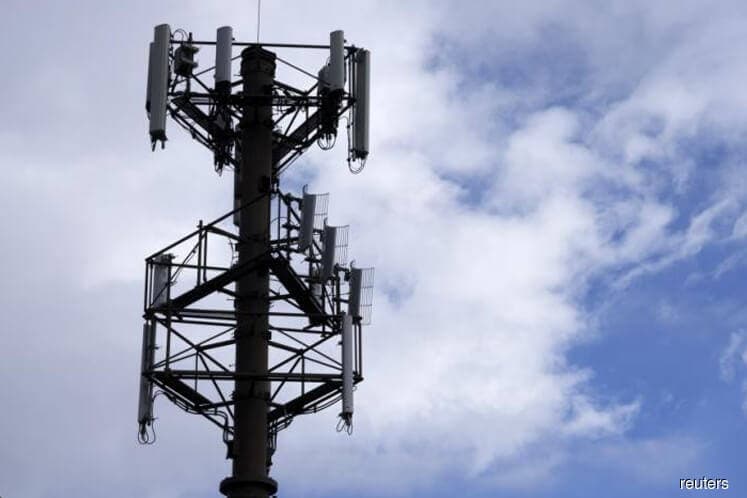
This article first appeared in The Edge Financial Daily on March 7, 2019
Telecommunications sector
Maintain neutral on the respective sectors: The telco sector’s fourth quarter of 2018 (4Q18) results were somewhat mixed as normalised earnings of Digi.Com Bhd and Axiata Group Bhd came in within expectations while Telekom Malaysia (TM) Bhd did not suffer profit erosion as bad as we had expected from the mandatory standard access pricing (MSAP) regime and repriced Unifi options.
Time dotcom Bhd’s (TIME) results were stronger than expectations with its second half (2H) earnings coming in above the management’s guidance due to continued fixed broadband growth in the wholesale, retail and enterprise markets. Maxis underperformed due to additional costs for productivity enhancement and marketing for its fiberised solutions targeting the enterprise segment.
As Communications and Multimedia Minister Gobind Singh Deo has recently indicated that high-speed broadband prices will not be cut this year, TM’s earnings prospects have stabilised for now with around 90% of its Streamyx and Unifi existing customers having been upgraded to faster speed packages while experiencing minimal downtrading activities together with manageable revenue declines in its financial year 2018 (FY18). This was supported by TIME’s experience wherein customers took up faster speed packages versus (vs) more affordable options.
Cellular operators’ (celco) 4Q18 net profit fell 30% quarter-on-quarter (q-o-q) and year-on-year (y-o-y) to RM790 million largely even though revenue improved, up 1% q-o-q and 5% y-o-y respectively, from higher average revenue per user (Arpu) and postpaid subscribers for Celcom and Digi. The lower bottom line stemmed from a six percentage points q-o-q decline in net profit margin to 13% from Maxis’ additional marketing/operational costs and Celcom’s higher depreciation and tax charges.
Total subscribers continued to contract amid tight competition and ongoing SIM consolidation, declining q-o-q by 344,000 subscribers and 723,000 subscribers y-o-y to 31 million subscribers. A major portion of the y-o-y decline stemmed from Celcom, which lost 470,000 subscribers while Maxis shed 167,000 subscribers and Digi 86,000 subscribers. These contractions stemmed purely from the prepaid segment, which shrank by 606,000 subscribers q-o-q and 1.5 million subscribers y-o-y to 22.5 million subscribers.
While the prepaid subscriber base continued to dwindle, the higher value postpaid segment grew by 262,000 subscribers (3%) q-o-q and 790,000 subscribers (10%) y-o-y respectively. This underpinned the celco service revenue momentum, which increased by 1% q-o-q and 5% y-o-y, to RM6 billion as blended Arpu rose by RM1 per month to RM49 per month.
Maxis remained the revenue leader despite Digi’s larger subscriber base. Digi continued to command the largest subscriber market share at 37% vs Maxis’ 34% while Celcom remained a distant third at 29%. Digi’s pole position since 1Q16 stemmed largely from its strength in the prepaid segment, underpinned by the migrant population. However, Maxis was stronger in the postpaid segment with an Arpu and subscriber base which were 29% and 14% respectively higher than Digi’s. This placed Maxis in the leading position with a 2018 revenue market share of 40% vs 32% for Celcom and 28% for Digi.
Maxis, which is already an established player in the fiberised solutions via the leasing of TM’s high-speed broadband network, is aiming to penetrate more aggressively the business and enterprise markets by offering converged offerings. Celcom has started offering home fibre solutions in Sabah while Digi is testing the waters at the Jasin pilot project in Melaka.
Since the middle of 2018, no celco has launched a comparable package to counter U Mobile Sdn Bhd’s prepaid GX30 which offers unlimited data with speeds up to 3Mbps for just RM30 per month. Recall that U Mobile also launched postpaid GX50 which provides unlimited voice and data with speeds up to 5Mbps for RM50 per month.
Postpaid plans for Digi remained at RM58 per month for 10GB data, Celcom offers RM80 per month for 20GB data and Maxis RM98 per month for 40GB. However, Digi also offers unlimited voice and data plans via online registration at a higher priced RM100 per month for speeds of up to 10Mbps, similar to Unifi mobile’s unlimited voice and data plan at RM99 per month.
Even though there appeared to be a half-year ceasefire in the postpaid wars, near- to medium-term revenue growth outlook remains weak against the backdrop of persistent pressure to gain market share. As U Mobile and Unifi mobile wrestle for new customers on the unlimited mobile data arena, prospects for incremental service revenue accretions are unexciting at this stage, underscored by the sector’s tepid forward momentum over the past years.
Maintain “neutral” call given the continued intense competition in both the mobile and fixed broadband markets. We have “hold” calls on Axiata, TM and Digi while Maxis is “underweight” due to its premium valuations despite its financial year 2019 forecast (FY19F) guidance for an Ebitda decline amid additional capital expenditure for fiberised solutions, digitalisation and productivity capabilities. — AmInvestment Bank, March 6